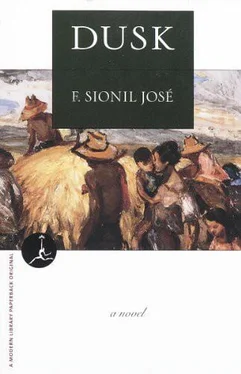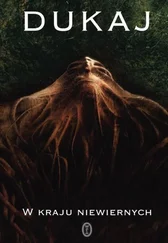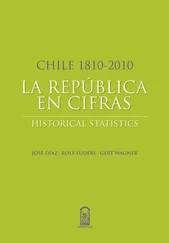Having heard them, Bit-tik gladly offered the extra box of matches he always carried. They had little money; they had come to Tayug to sell dried meat and mountain fish preserved in fermented rice, and the big jars which they carried slung by a rattan net on their shoulders were filled with salt which they would bring back to their village.
“You don’t have to pay me for this,” Bit-tik said as they walked out of the store. Bit-tik was planning to sleep that evening in one of the sheds by the church.
“Where do you come from?” he asked. “I have no place for the night, and I have to heat roasted meat for supper.”
The two men looked at each other. Their Ilokano was accented — they could be from the big valley, Bit-tik surmised. He had heard that accent before from the people in the valley who had gone down to buy salt in Pangasinan.
“Come with us and share our humble home,” the taller of the two said with downcast eyes. He seemed shy facing people; with that kind of face, Bit-tik understood.
The afternoon was now cool, the plaza where the merchants had finished packing their goods was empty but for the scraps of trash they had left. “It is a long walk, but perhaps you will want to visit with us …”
And why not? Bit-tik had never been apprehensive about going with strangers; there was in his manner a disarming friendliness. Besides, what did he have to lose? Pieces of dried meat, suman , and the shabby clothes on his back? He was not a profitable prey for any bandido .
“I will go with you,” Bit-tik said quickly.
He was not rested yet after the long hike from Rosales and he was going on another long walk. They headed toward the Caraballo range — the mountains loomed so near but they were still a distance away. “There, there.” One of the newfound friends pointed his spear to a foothill; behind it the mountains burned with the gold of the setting sun. “Beyond that is where we live. Are you really sure you would like to come? We want you to come — and know this, not many have visited us, even the people in Tayug. You must have noticed how they regarded us as Bagos. We are not …”
“Forgive those who are ignorant,” Bit-tik said.
It was already dark when they started climbing, first through cogonals along frequented paths that were distinct in the afterglow.
He marveled at their strength. They had carried those jars strapped to their backs for a long time. Even empty, they could weigh a man down and drive welts on the shoulders where the rattan web was strapped. In a while, the stars swarmed out of the sky; there was no moon and the mountain became alive with the call of night birds, the celebration of insects. He had done much walking on level ground and he realized that though he was as strong as a water buffalo, he would tire after every brief but steep ascent while his two companions, even with their heavy loads of salt, seemed to glide easily up the incline. The trail vanished altogether and the forest dropped on them like a giant pall, forbidding and black. The stars that once glimmered above had disappeared. Sometimes there would be a spot of greenish glow — ghostly yet ethereal, the sudden shrieks of birds disturbed in their roosts. They shook him and sent a quiver to his heart. His new friends seemed to sense his apprehension, for they started a familiar song which he knew, although the words as he remembered them were all earthy and impolite: Pamulinawen … pamulinawen …
The forest was drenched with the odor of moss, dead leaves, and rot, and he wondered if there would be pythons hiding, too, waiting to strike. The two did not seem worried — they knew the uncharted way as if by instinct and as they told him afterward, the warm, delicious smell of home guided them.
Toward midnight, he asked them if he could rest once again, for his legs were already numb. And God, he was thirsty. One of them left, then returned with what seemed like a short length of bamboo cut on one end. He raised it to his lips and the water was sweet, almost like the water of a young coconut. They let him sleep briefly, then he was awakened, refreshed, and ready to challenge the mountain again.
They knew their way through the densest gloom. It was as if at every turn an emerald swamp opened up to swallow them and they had become the foliage itself, alive in the moss-covered trunks, in the roots entwined with one another, in the giant ferns that brooded around them.
The east started to glimmer, and the tiny patches of sky turned into bronze, the lofty trees took shape, their leaves started to glisten as morning poured upon the range. It was then, too, that they broke through the last curtain of trees. Before them spread a wide valley, a stream running through, and in the middle, a village, the smoke of cooking fires curling above the grass roofs. Coming as he did from the bowels of night, he could feel mist gathering in his eyes; before him, the glorious beauty of creation, all that he would have wanted to live with if Cabugawan did not have a claim on him.
They raced down the mountain, through fields of young rice plants watered by springs and well-groomed plots being prepared for planting. At the edge of the fields were pits covered with leaves. Bit-tik was warned about them — they were traps for wild pigs and deer which ravaged the ripening grain.
They passed houses, heard the laughter of children but there was no one at the windows. Sometimes a figure would dart way ahead into a house, a woman in a skirt, her hair shining in the sun, or a boy, half naked, but no one came out to greet them. They took him to the biggest house at the far end of the village, apart from the other dwellings.
“This is where Apo Diego lives,” he was told. “We will leave you here so you can eat and rest.”
He went up the bamboo stair into a wide room floored with solid planks that were roughly hewn. The grass roof was so thick, Bit-tik was sure it could last a hundred years. On the low eating table, as if it had just been placed there, was a plate of steaming rice, pieces of dried meat, slices of tomato, and yes, real coffee — its aroma seducing him. Surely the food was for him. He sat down and started to eat. He didn’t stop till he was full, yet no one came out to meet him. “They must be asleep still,” he told himself, and reclining on the floor, he gazed out of the open doorway at the fields slumbering in the morning sun, heard again the happy voices of children, although he couldn’t see them. A sweet, dreamlike peace came over him like a deluge and he was soon asleep.
It was late in the afternoon when he woke. Close by, squatting on the wooden floor, was an old man whose hair was white and long; it flowed past his nape and down his back. The old man’s face was lined with deep furrows. His clothes were coarse, almost like sackcloth, but they were neat and seemed newly washed.
“You must be rested now,” he said, smiling. His voice was almost like a woman’s, soft and warm, not gravelly or raspy.
The old man rose and turned to the open doorway. Beyond, the valley basked in the last light of day.
“Thank you very much, Apo,” Bit-tik said, “for the good breakfast, the sleep that I needed.”
The old man told him how they, too, descended from the Ilokos a long time ago; no one in the original caravan was left — just him. At first, the Bagos made war on them, and many on both sides were killed. In time, the settlers made peace and learned to live with the Bagos, but by then it was difficult for complete mutual trust to develop. There was much suffering — although there was enough for everyone, the Igorots worried that their lands were being snatched, and the settlers, who believed they had finally fled Spanish tyranny, had simply found another vicious enemy.
Читать дальше












